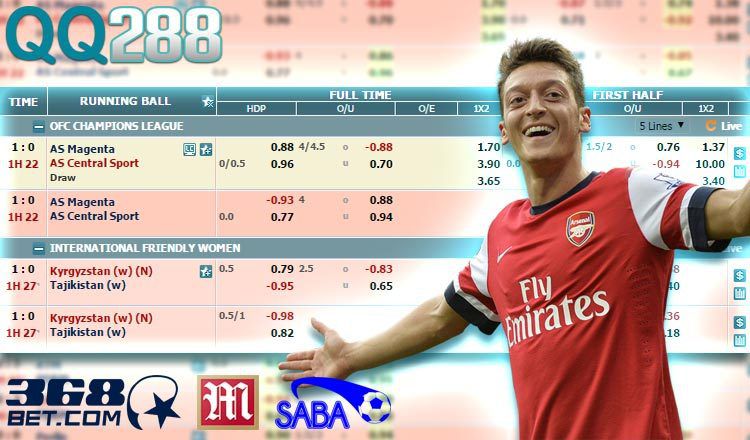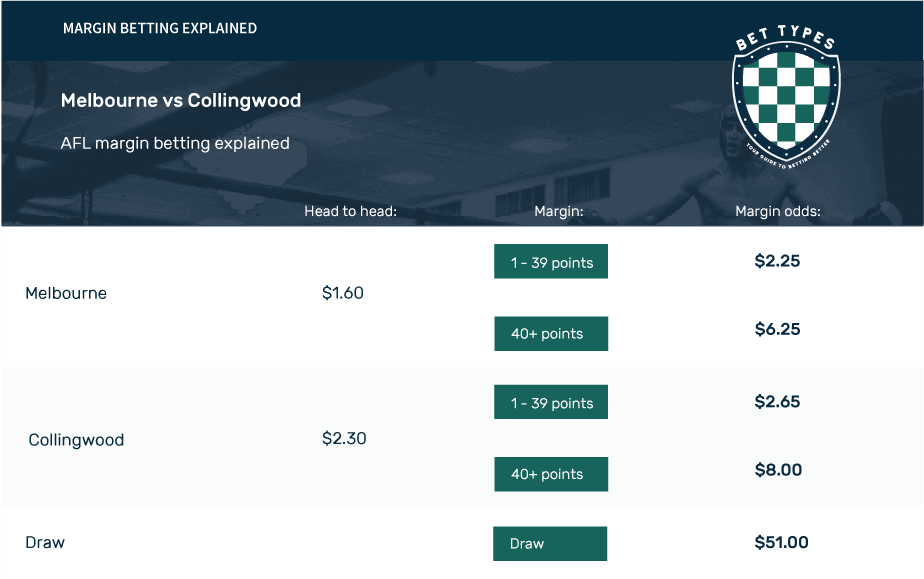Points Betting Explained
Point Spreads Explained. The point spread is probably the most common bet when you think of wagering on a single sporting event. That is because it's designed to bring the two teams to an even playing field. Points Betting is a unique sports betting option available only at PointsBet Sportsbook (currently in New Jersey and Iowa ). This kind of point spread wager is based on the margin of victory or loss and can be very volatile, depending on how much risk a. Points Betting is a fun way to increase your profits and the excitement of Football. For example, let’s say you wager $10 on a team that is favored to win by three points. This means that you can earn $10 for each extra point that the team covers the spread. A point spread is used by oddsmakers to even out a matchup from a betting perspective, assigning more or fewer points to a team’s final score. In order to win a point spread wager, a bettor must “beat the spread.” As a result of a more even matchup, point spread betting. The notion of buying points on a betting line is just like it sounds. This relates only to the point spread of a game, in which oddsmakers have established a favorite and an underdog with a specific spread on the.
- What Is Points Betting
- Points Betting Explained
- What Do Points Mean In Betting
- Betting Points System Explained
- Points Betting Explained For Dummies
Spread Betting Explained
by Jason Shimberg - 01/15/2008
Doc's Sports offers spread betting explained in a way that is easy for even novice bettors to understand. The definition of point spread is the predicted scoring differential between two opponents as quoted by a sports book. The point spread is also called the line. If you have have bet a sporting event in the past, but have never bet on the point spread this will ease the process and explain how it works.
How the point spread works - When two teams meet on the playing field or on the basketball court, one team is typically better than the other or in a more favorable position because of factors like playing at home. If all you had to do were pick the winning team in a game, everybody would simply wager on the best team or the home team in a even matchup and bypass all the lines and collect their winnings at a high rate.
A point spread - Lets take, for a hypothetical situation on one of the types of football bets (using the point spread), that the Kansas City Chiefs were visiting the Detroit Lions and Detroit was established as a six-point favorite at game time, which is commonly written as Detroit -6. Kansas City would be the underdog and displayed as Kansas City +6. If you bet the favorite, Detroit has to win by more than six points to win your bet. Remember, the Lions are favored by six points, so we subtract six points from their final score on a spread bet. If Detroit were to win 27-20, Lions bettors would win their wager. If the Chiefs were to win the game by any score and you picked the Chiefs you would win not including the extra six points. If the Lions were to win, 20-14, it would be exactly six and a push, so you would get your money back.
Betting against the spread - In the sports betting industry the acronym ATS is used to label a team's record when betting against the spread. ATS records are a valuable tool in sports handicapping. A team may be playing great straight-up, winning a lot of games but at the same time they could have a dreadful ATS record because they are overvalued by the general public and the oddsmakers. And, conversely, a team could be losing a lot of games but playing in a lot of close games as underdogs and have a good ATS record going.
Bookmaker's interest - In order to guarantee a profit for the house, a bookie needs to create even action on both sides of a particular game. In a perfect world the bookie would have 50 percent of the handle come in on the underdog and 50 percent on the favorite. This ensures that the sports books are guaranteed a profit because of the 10 percent commission or 'vigorish' charged on most sports wagers. This is why there is 'movement' on the point spread. If one side on a game is being bet more heavily, the bookie must move the number in order to attract interest on the other side in order to balance action.
Spread betting is not convoluted - Many people decide that it's too arduous without ever giving it a try. In fact, once the simple concept has been grasped it becomes exceedingly painless to comprehend. Settle on if you think the oddsmakers' prediction is too low or too high. It's that straightforward. Learn the basics, so you and your wallet are not spread too thin.
Point spread betting is the most popular form of sports betting. The vast majority of sports wagers use a point spread thanks to the popularity of football and basketball. Even though this type of betting is so popular, it may take awhile to understand.
The point spread is sometimes known as an equalizer for sportsbook operators. All teams aren’t created equally, so sportsbooks can create a point spread for a game so that each team playing has an almost even chance of winning the game. In a way, the point spread will even the field for both teams.
The point spread gives a reason for bettors to risk money on both teams. The better team playing in the game is considered favorite. They have to win by the point spread offered by the sportsbook. The favorite in a game is listed as being minus (-) the point spread.
What Is Points Betting
The worse of the teams playing in the game is called the underdog. The bettor wins if this team wins the game outright or loses by an amount smaller than the point spread. The underdog in a game is listed as being plus (+) the point spread.
Let’s use this past Super Bowl between the Tampa Bay Buccaneers and Kansas City Chiefs as an example.
Using this example, the Chiefs were 3-point favorites over the Buccaneers. The Chiefs needed to win by 4 or more points to cover the spread.
Likewise, the Buccaneers were 3-point underdogs. That means the Buccaneers needed to win the game outright or not lose the contest by 4 points or more. At Chiefs -3, if they won by exactly 3 points, the betting result would have been a “push” and bettors for both sides would have gotten their wagers refunded.
The Buccaneers pulled off the upset, winning by a score of 31-9, and rewarded bettors who backed them at +3.

Point spread betting odds

Point spreads are usually set with -110 odds, but pricing often fluctuates at online sportsbooks. This is the sportsbook operators’ house edge. The odds guarantee the sportsbook operator will see a little money over time. When the odds are set at -110, the bettor must wager $110 to win $100 (or $11 to win $10).
The odds on a point spread are most commonly known as the vigorish or “vig” for the sportsbook. You might hear this small profit margin for the sportsbook called the “juice” by some sports bettors.
Point spread FAQs
What does ‘pick em’ or ‘pick’ mean in NFL betting?
A “pick em” (sometimes seen as “pick”) is when the teams have a point spread of zero, meaning neither team is favored. In this instance, you’re essentially picking moneyline and your bet will be determined on the winner alone.
What does -7 and +7 mean in NFL betting?

Points Betting Explained
A spread of minus-seven (-7) means that a is favored to win the game by a touchdown (technically, a touchdown and the extra point). A team favored by -7 must win the game by eight or more points to win the bet. If the team wins by seven, the result is a “push” and the bet is refunded.
A spread of +7 means the team must win the game or lose by fewer than seven points to win the bet. A loss by seven would result in a push.
What does -3 and +3 mean in NFL betting?
A -3 spread means that the favorite must win by more than a field goal to win the wager. A three-point win would result in a push and the sportsbook would refund the wager.
What Do Points Mean In Betting
A spread of +3 means the team listed as the underdog must win the game or lose by fewer than three points to cash the bet. A three-point loss would be graded as a push by the sportsbook and the bet would be refunded.
Why are point spreads in the NFL so much lower than in college?
In 2019, the Baltimore Ravens led the NFL in point differential per game at +13.7 points; the Miami Dolphins ranked last in the NFL in point differential per game at -11.7. Even Kansas City– known for their explosive offense– had an average point differential in 2019 of just 9.7 points. The net point differential in the NFL is -14.1, or -0.9 points per game. Basically, the talent differential in the NFL is so minute that even mismatched teams often draw games within a score of each other.
NFL spreads are most commonly between one point and four, with six being a heavy favorite and extremes coming out around 15-20 point favors. (For those wondering, the 1941 Chicago Bears hold the NFL record of point differential at +15.7 points per game. Conversely, Ohio State had a +33.1 average point differential in 2019.)
Point spread and odds movement
Sportsbook operators often aim to have equal money on both sides of a point spread. When the money is exactly split the sportsbook operator will see the exact vigorish as their profit margin. If all things are equal over time this will maximize how much money the sportsbook operator can make.
Betting Points System Explained
In an effort to have equal money on both sides of a wager, the sportsbook operator will move the point spread to attract money on the side that customers aren’t betting on. The odds for a point spread might change before the actual point spread. There are certain point spread numbers, like 3 and 7 in football, the sportsbook operators would like to avoid moving away from since the final score margin falls on these two numbers most often.
Points Betting Explained For Dummies

For example, if a lot more money is wagered on the New England Patriots -3, the vig may shift from -112 to -115 and -120 before the line moves to -3.5.
Run and puck lines
Football and basketball games are mostly bet using a point spread. The less popular major sports, baseball and hockey, are mostly bet using a moneyline. In an effort to make baseball and hockey more appealing to point spread bettors, the sportsbook operators offer run and puck lines, respectively.
These alternative lines give point spread bettors a chance to wager on other sports using a more familiar method of betting. Since points (runs and goals) aren’t as easy to come by in baseball and hockey, the odds with the lines may have a wider spread than a football or basketball game.